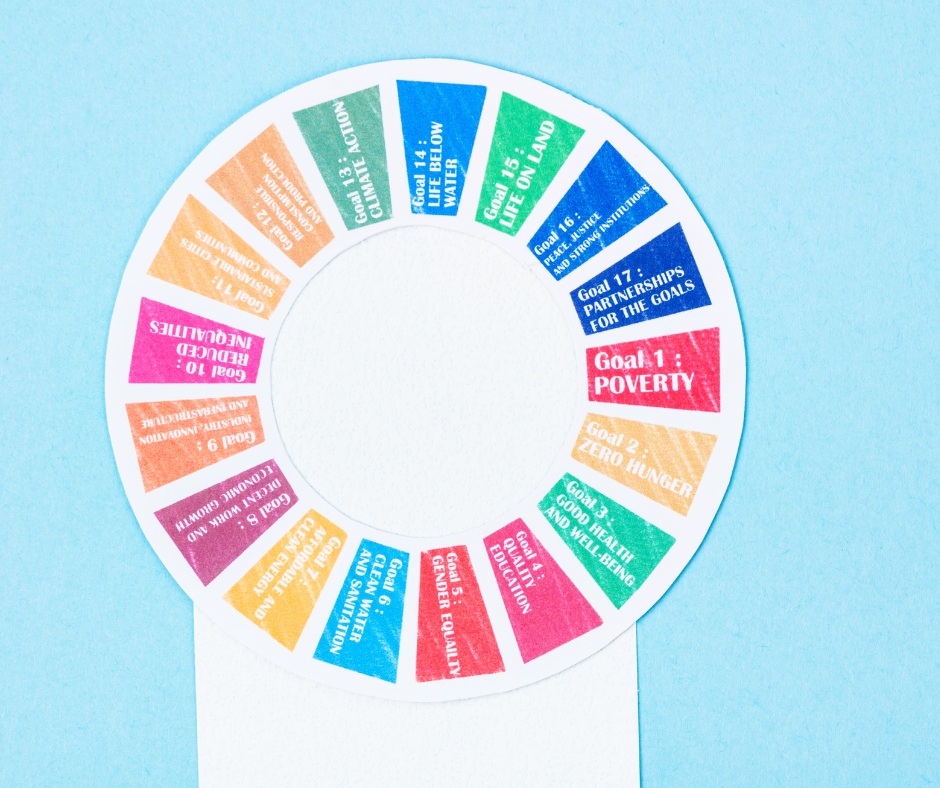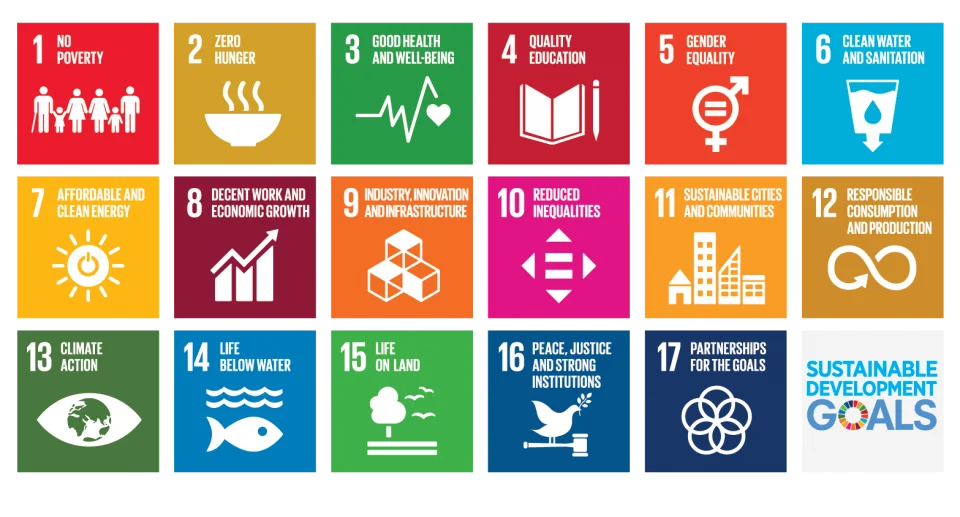Widows around the world often face significant socio-economic challenges, including discrimination, poverty, and marginalization. Despite these obstacles, their resilience and potential to contribute meaningfully to society are immense. Aligning their empowerment with the United Nations’ 17 Sustainable Development Goals (SDGs) offers a strategic framework for creating inclusive, equitable, and sustainable communities. This blog explores how the voice of widows can and should be integrated into the global commitment to achieving the SDGs by 2030.
SDG 1: No Poverty
Widows frequently face economic hardships due to loss of income and property rights. Empowering widows with financial literacy programs, access to credit, and entrepreneurship opportunities can significantly reduce poverty levels. Supporting initiatives that offer widows vocational training and employment opportunities will ensure sustainable livelihoods.
Actionable Steps:
- Develop community-based microfinance programs tailored for widows.
- Provide vocational training and skill development workshops.
- Ensure access to social protection systems and safety nets.
SDG 2: Zero Hunger
Widows often struggle with food insecurity. Addressing their nutritional needs through community gardens, food distribution programs, and agricultural training can ensure they and their families have access to sufficient and nutritious food.
Actionable Steps:
- Establish community gardens and cooperative farming projects.
- Create food assistance programs specifically for widows and their dependents.
- Promote sustainable agricultural practices among widows.
SDG 3: Good Health and Well-Being
Health care access is critical for widows, who may face physical and mental health challenges following their spouse’s death. Providing affordable and accessible healthcare services, including mental health support, is crucial.
Actionable Steps:
- Set up mobile clinics to provide health services in remote areas.
- Offer mental health counseling and support groups.
- Implement health awareness campaigns focusing on widows’ specific health needs.
SDG 4: Quality Education
Education is a powerful tool for widows and their children to break the cycle of poverty. Ensuring widows have access to education and lifelong learning opportunities can transform their lives.
Actionable Steps:
- Provide scholarships and adult education programs for widows.
- Support initiatives that facilitate school attendance for widows’ children.
- Create literacy programs tailored for widows.
SDG 5: Gender Equality
Widows often face gender-based discrimination. Promoting gender equality through legal reforms, awareness campaigns, and community engagement can help protect their rights and ensure their participation in societal development.
Actionable Steps:
- Advocate for legal reforms to protect widows’ rights to inheritance and property.
- Launch awareness campaigns to combat stigmatization and discrimination against widows.
- Encourage the formation of widow support groups and networks.
SDG 6: Clean Water and Sanitation
Access to clean water and sanitation is fundamental for health and well-being. Ensuring widows have adequate water and sanitation facilities can prevent diseases and improve their quality of life.
Actionable Steps:
- Implement community water projects to ensure access to clean water.
- Construct sanitation facilities in areas where widows reside.
- Promote hygiene education programs targeting widows.
SDG 7: Affordable and Clean Energy
Energy access is crucial for widows’ economic activities and overall well-being. Providing affordable and clean energy solutions can enhance their living conditions and support entrepreneurial activities.
Actionable Steps:
- Distribute affordable solar lamps and clean cooking stoves to widows.
- Support community renewable energy projects.
- Train widows in the maintenance and use of clean energy technologies.
SDG 8: Decent Work and Economic Growth
Economic empowerment of widows can drive local and national economic growth. Creating decent work opportunities and supporting entrepreneurship among widows can lead to sustainable development.
Actionable Steps:
- Develop job placement and career development programs for widows.
- Offer business training and support for widow-led enterprises.
- Promote fair trade practices that benefit widows’ businesses.
SDG 9: Industry, Innovation, and Infrastructure
Investing in infrastructure that supports widows’ economic activities can drive innovation and growth. Providing access to technology and infrastructure can enable widows to participate in economic development.
Actionable Steps:
- Establish hubs that provide widows with access to technology and resources.
- Invest in infrastructure projects that improve widows’ access to markets and services.
- Support innovative projects that address widows’ specific needs.
SDG 10: Reduced Inequality
Widows often experience social and economic inequalities. Addressing these disparities through inclusive policies and programs is essential for achieving equitable development.
Actionable Steps:
- Implement policies that ensure widows have equal access to resources and opportunities.
- Promote social inclusion programs that integrate widows into community activities.
- Address discriminatory practices that affect widows.
SDG 11: Sustainable Cities and Communities
Creating sustainable and inclusive communities involves ensuring widows have access to safe housing, transportation, and services. Urban planning should consider the unique needs of widows.
Actionable Steps:
- Develop affordable housing projects for widows.
- Improve public transportation systems to be accessible for widows.
- Ensure community services are inclusive and cater to widows’ needs.
SDG 12: Responsible Consumption and Production
Promoting sustainable practices can benefit widows economically and environmentally. Training widows in sustainable agriculture and crafts can create eco-friendly income opportunities.
Actionable Steps:
- Provide training in sustainable farming and resource management.
- Support widow-led enterprises that produce eco-friendly products.
- Promote recycling and waste reduction initiatives within communities.
SDG 13: Climate Action
Widows are often disproportionately affected by climate change. Enhancing their resilience through climate adaptation programs can protect them from environmental risks.
Actionable Steps:
- Implement climate adaptation training and resources for widows.
- Involve widows in community-based climate action initiatives.
- Develop emergency preparedness plans that consider widows’ vulnerabilities.
SDG 14: Life Below Water
For widows in coastal and fishing communities, sustainable management of marine resources is vital. Supporting their involvement in conservation efforts can ensure their livelihoods.
Actionable Steps:
- Train widows in sustainable fishing practices.
- Involve widows in marine conservation projects.
- Support alternative livelihood programs to reduce pressure on marine resources.
SDG 15: Life on Land
Widows often depend on land for their livelihoods. Ensuring their rights to land and resources, and promoting sustainable land use practices can enhance their economic security.
Actionable Steps:
- Advocate for secure land tenure for widows.
- Promote sustainable agriculture and forestry practices.
- Support reforestation and conservation projects involving widows.
SDG 16: Peace, Justice, and Strong Institutions
Widows need protection from violence and exploitation, and access to justice. Strengthening legal frameworks and institutions to support widows’ rights is crucial.
Actionable Steps:
- Advocate for legal reforms to protect widows from violence and exploitation.
- Ensure widows have access to legal aid and support services.
- Promote community policing and conflict resolution mechanisms.
SDG 17: Partnerships for the Goals
Achieving these goals requires collaboration between governments, NGOs, the private sector, and communities. Forming partnerships that focus on widows’ empowerment can drive progress across all SDGs.
Actionable Steps:
- Establish multi-stakeholder partnerships to address widows’ needs.
- Foster collaborations between NGOs, governments, and the private sector.
- Support international networks and coalitions advocating for widows.
Conclusion
The integration of widows’ voices and empowerment into the SDGs is not just a moral imperative but a strategic necessity for achieving sustainable development. By addressing their unique challenges and harnessing their potential, we can make significant strides towards a more inclusive, equitable, and prosperous world. Let’s commit to making widows a central part of our journey towards the 2030 Agenda for Sustainable Development.







